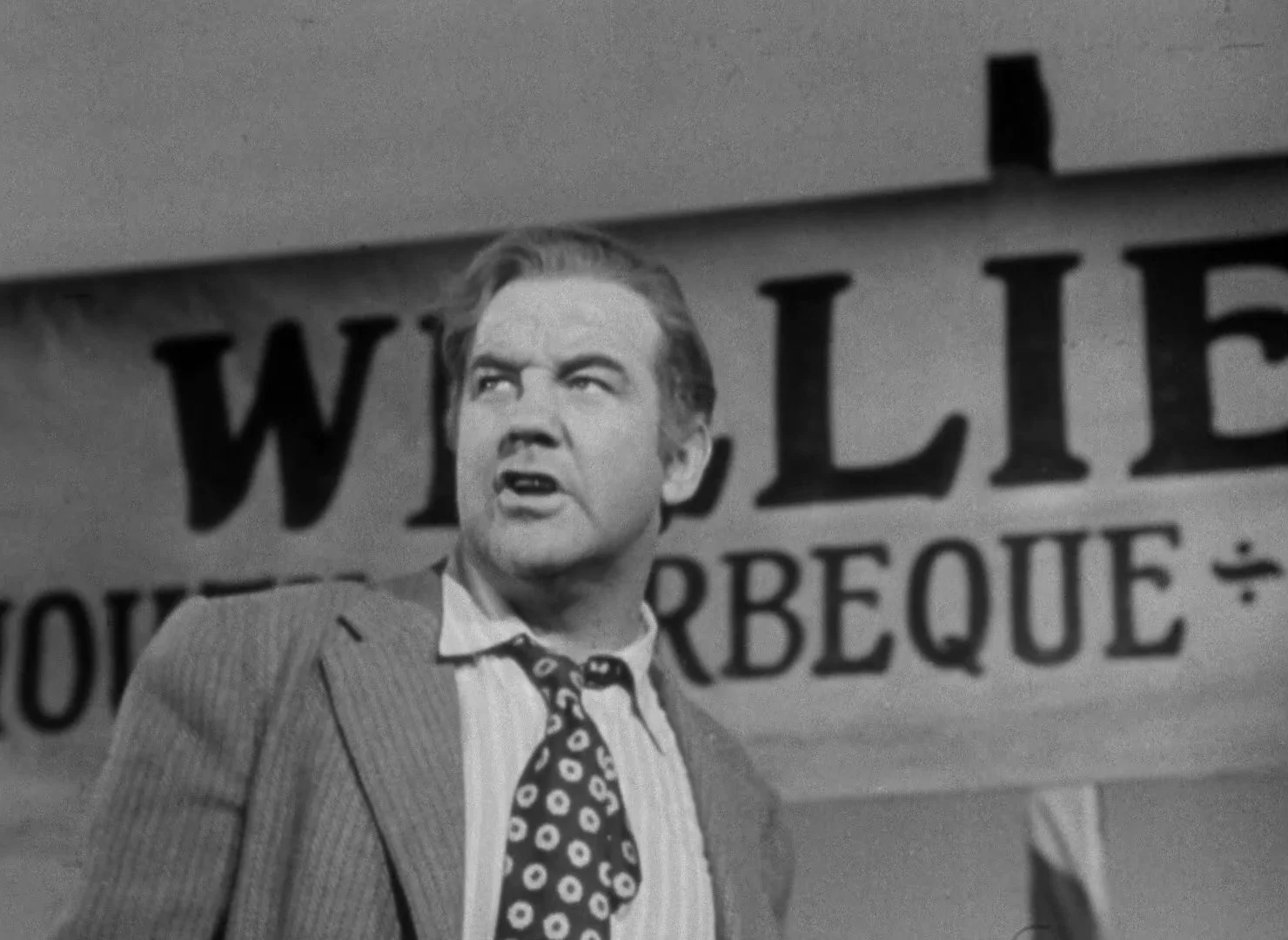And the Oscar Goes to…Broderick Crawford
Photo Credit: CBS Television
140 milliseconds. That’s the amount of time it takes for the orbital frontal cortex, the area of the brain right above the eye sockets, to light up when a baby enters our field of vision, evolution’s clever parlor trick to ensure the survival of our species.
86.4 million milliseconds. That’s the amount of time, approximately 24 hours, it took my dad to hold me for the first time after I was born. Apparently, the pleasure centers in his brain were unmoved by my arrival. Instead, Dad had worried that the reddish, pinkish, almost 10-pound mass of flesh in front of him looked a whole lot like Broderick Crawford — the beefy, 6-foot-2, chain-smoking Oscar winner who was best known for his role as Chief Dan Matthews in the television series Highway Patrol. “I used to yearn to be a matinee idol,” Crawford said once. “I’m no Apollo…My face, however, was one casting directors remembered, even if sorority girls didn’t.”
Dad felt like life had handed me a raw deal.
Almost three decades before I was born, Broderick Crawford crossed the stage at the RKO Pantages Theatre in Hollywood to accept the Oscar for Best Actor in a Leading Role, beating out acting legends like Gregory Peck, John Wayne and Kirk Douglas. In his remarks, which lasted 12 seconds, he said “Mr. Douglas said I was to thank nobody; I would like to thank all of you, and especially thank God.” The film he starred in, All the Kings Men, would go on to win Best Picture. The year was 1950.
In the history of the Academy Awards, a film has won for both best motion picture and best actor in a leading role only 27 times. The last time was in 2012 for the film The Artist and French actor Jean Dujardin.
Photo credit: Columbia Pictures
Before Broderick Crawford was cast in All the Kings Men as Willie Stark — a corrupt 1930s era politician whose fall from grace was as spectacular as his rise to fame — he had mainly acted as a “B-picture thug.” He was everyone’s favorite sidekick, no one’s leading man. Columbia Studios, which funded the film, wanted Spencer Tracy in the leading role, but Robert Rossen, the film’s director, insisted on someone less likable. He had seen Crawford perform on Broadway as Lennie in Of Mice and Men, a production written by John Steinbeck himself, and thought he “suited the part to perfection.”
Crawford prepared for the role by listening to old voice recordings of Huey Long — the flamboyant, demagogic former governor of Louisiana and real-life version of Willie Stark. Crawford described Long as “a poor, sad, violent, complicated bastard.”
When asked about his acting technique, Crawford said, “No theory, no school of acting. I watch people everywhere I go, try to understand.” If there were any technique, he said, it was in the way he allowed the character to consume him, like “the rough time you have when a character is soaking into you, and making you inarticulate, heavy, dumb, until he grows big and firm enough inside you to take over.”
Crawford was only 39 when he won the Oscar but would never again match the acclaim he received for the role. Boston Globe film critic Marjory Adams wrote of Crawford, “He gives a violent and absorbing performance.” Of the film overall, she wrote, “It’s as explosive as an atom bomb, in the face of an apathetic, lazy-minded mercenary public.”
Robert Penn Warren, who wrote the Pulitzer Prize winning novel that inspired the film, said he hadn’t set out to write a book about politics. “Politics merely provided the framework story in which the deeper concerns, whatever their final significance, might work themselves out.”
In one memorable line in All the Kings Men, Broderick Crawford says “Man is conceived in sin and born in corruption.”
Off screen, Crawford was no Willie Stark. While various accounts of his life point to a persistent struggle with alcohol, money and relationships, in his own estimation he had a “helluva life.”
He died in 1986, after a series of strokes, at the age of 74.
In 2001, the United States Library of Congress selected All the Kings Men for preservation in the National Film Registry due to its cultural significance.
As for Crawford, the biggest moment in his life was not when he crossed the stage to accept an Academy Award. It was in the long quiet between the curtain dropping on opening night on Broadway, when he played Lennie in Of Mice and Men, and the frantic eruption of applause that followed. “I knew I’d earned my money, done my job,” he said.
As for my dad, once the vast layers of my baby fat thinned out, he stopped worrying so much about my likeness to Broderick Crawford, the man with the “face of a retired pugilist,” and instead seemed somewhat chuffed that my eyes, like Crawford’s, were still blue.
Photo of Jennifer Young Perlman


